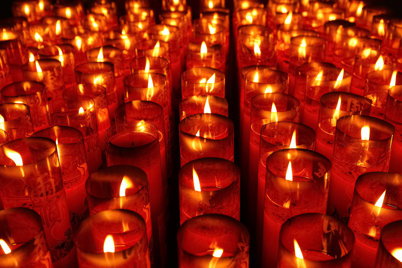Navigating Difficult Times: 7 Practical Tips to Help You Cope [updated]


What’s happening?
Recent violent events in the news have caused concern for almost everyone I know, and certainly myself. We live in difficult times and events locally, nationally, and internationally seem to be occurring with increasing regularity. So many of us are feeling the impact.
Within the last two months alone, there have been devastating hurricanes in Puerto Rico, Florida, and Houston, terrible fires in the Northwest, political tension with North Korea, continued terrorist attacks in Europe, and racial unrest in the South. This recent mass shooting in Las Vegas has left many of us reeling and searching for answers. Many people simply don’t feel safe.
When we see these reports on television or the internet, it would be easy to fear that you or a loved one could be the next victims of an attack or the next natural disaster.
Your Feelings Are Normal
It’s certainly understandable that we are going to be impacted when hearing about and seeing these truly horrific events. Many people are sharing a heightened sense of fear, vulnerability, stress, frustration, confusion, and feelings of helplessness. Some are losing sleep, afraid to be in public, and even withdrawing from their normal day-to-day activities.
If you, a colleague or loved one are experiencing any of the above, please know this: you are not alone, and you are a normal person, having perfectly normal reactions to the abnormal events of our time. You are not, we repeat, not going crazy. You’re simply and understandably quite upset at all of this. I haven’t met anybody who isn’t, including myself.
Get the Facts
While seeing these events unfold on television is quite dramatic, it’s also important to get some perspective. Of course, we’re all a bit or a lot scared right now. But the odds of being a mass shooting victim are incredibly small. You are actually more likely to drown or choke on food.
Of course, that is no consolation to the survivors and their loved ones, but it’s important to keep this in mind.
Having said that, we are still upset by all of this.
Here are seven practical and proven tips to help you and your loved ones get through these difficult times:
1. Do a quick self-assessment.
Simply do an honest inventory of any signs and symptoms that you are noticing about yourself that tells you that you’re impacted. It could be anything: losing sleep, increased hyper-vigilance, withdrawal from family, friends, and colleagues, over-eating, not eating enough, pervasive feelings of anxiety and sadness. If you have recently suffered an unrelated but traumatic loss, such as the death of a loved one, are new to a community, or recently had a medical problem, it may be helpful to seek out additional support. Again, all of these are normal signs that you are simply human. So, again, don’t label yourself as crazy. You’re not.
2. Talk to someone you trust.
They say that “pain shared is pain halved.” I definitely agree. Reach out to friends, your partner, family members, or colleagues. If these are people that you feel comfortable with and who will take the time to listen, simply ask them for help in processing the impact of all of this. You can do the same for them. If nobody is around or feels safe, reach out to local resources, including your organization’s Employee Assistance Program, community mental health centers, the American Red Cross, or your local church, synagogue, or temple. People are there for you who are specifically trained to help.
3. Embrace your own self-care.
This is going to vary from one person to the next. Use behaviors that have proven to be healthy, including the basics such as staying hydrated and good nutrition. Even a light 20-minute walk can produce sufficient endorphins and dopamine to help lighten your mood. Also, make sure to get sufficient sleep. While there is a tendency to self-medicate the pain away, don’t create a second problem by abusing alcohol, prescription, and non-prescription medications. Alcohol and drugs can definitely make things worse for you and those around you.
4. Limit your media exposure.
A surefire way to make things worse is to continuously watch newsfeeds of the incident. Yes, a part of us wants to see it. Watching the news can actually help our brains wrap around the horror and gain at least a bit of understanding of what happened. However, watching the same scenes over and over again can lead to increased stress and anxiety. And there’s already enough of that, so make yourself turn it off and take a break from these disturbing scenes.
If you have children, it is important to seriously limit their exposure to these graphic events. Young children simply do not have the mental capabilities to absorb these images. It may be different for teenagers. You will need to assess their ability to understand and cope with all of this. Talk to them. Make yourself available to them. Let them know that you are having similar feelings and tell them what you are doing to help yourself cope.
5. Serve your community.
One of the things that I have seen time and again is that people who stay active in their community tend to recover faster. Assuming your own basic physical and emotional needs are being taken care of, as well as your immediate loved ones, look around and see if there is anyone else in need of some help in your neighborhood or your community. Maybe go check on the elderly widow who just lost her husband last year. Call family and friends and see what they might need. Volunteer at a local charity. Helping others is always a great way to deal with these situations.
6. Find good things to be grateful for.
In times like these, it’s easy to lose track of the wonderful and positive people and things in our lives. If possible, try to find some meaning in all of the bad news. Remind yourself that there are more good people in the world than bad. Many more. It’s just that the good people just don’t always get the press.
7. Seek additional resources.
If you’ve tried the tips above and things just don’t seem to be getting better, and maybe you’re even feeling worse, give me a call for a free 15-minute phone consultation. During times like these, I’m more than glad to help out in any way I can.














